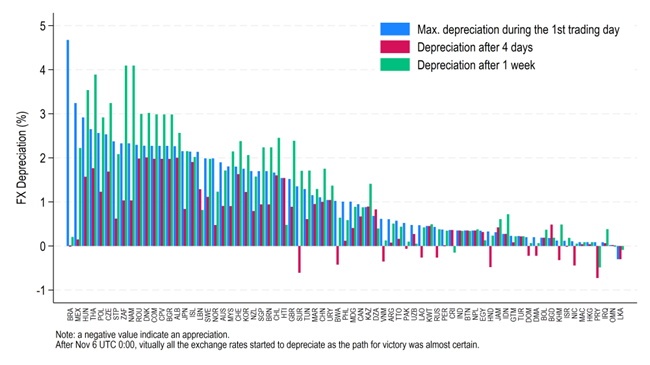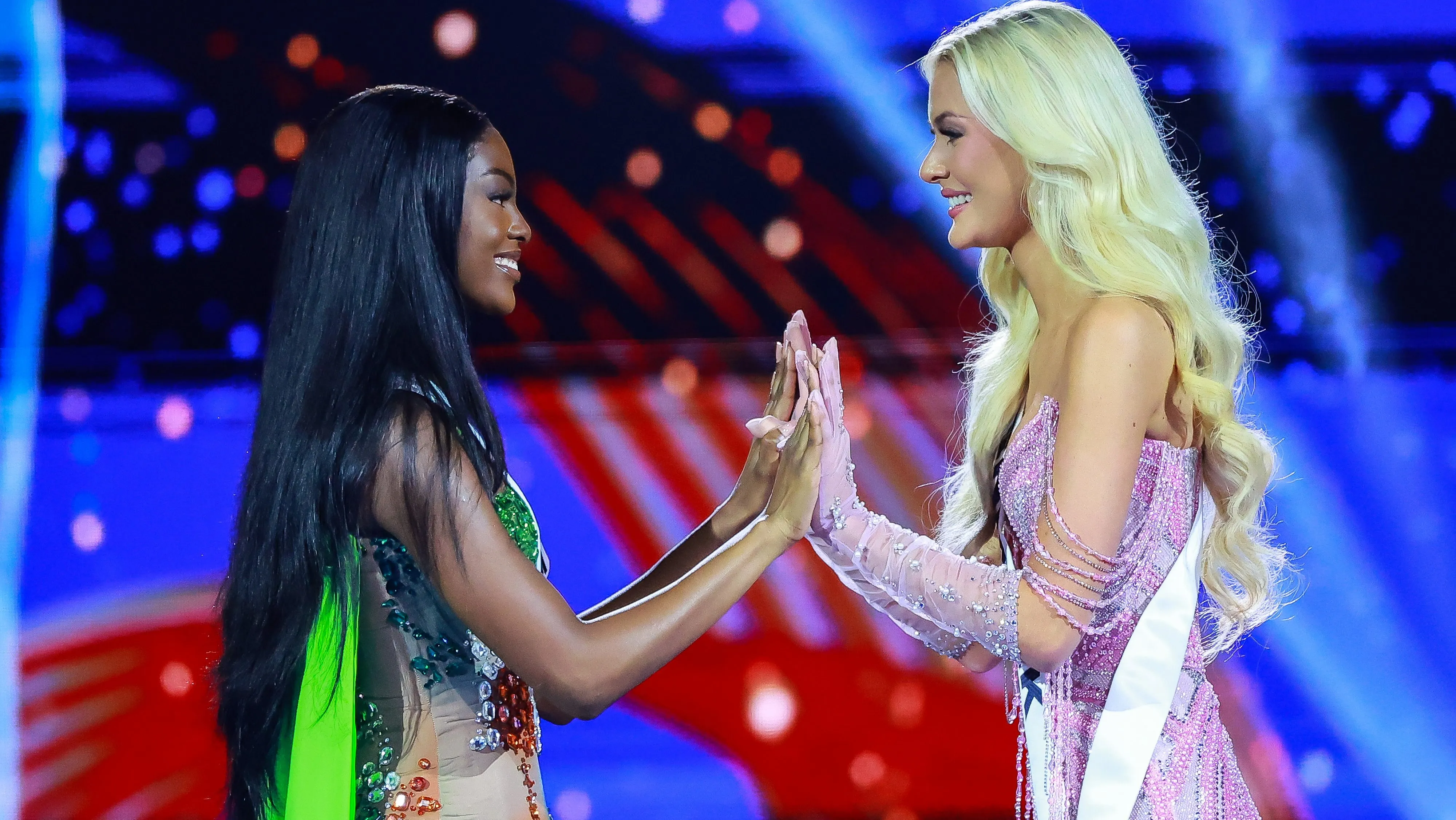Gina Ferazzi/Getty Images
An exit poll conducted by Edison Research in the wake of the 2024 Presidential Election indicated that 65 percent of American Indians voted for Donald Trump. The poll, circulated by various national news organizations, and widely cited through NBC News’ exit poll page, sparked intense discussion, becoming fodder for right-wing talking heads to point to a surge of Native American support of Trump across the country.
The data, however, paints far from a complete picture. American Indians represented only one percent of the total voters surveyed, meaning that less than 300 self-identified Native American individuals were counted to represent the approximately 3.1 million registered Native American voters in the United States. Notably, according to Native News Online, none of the exit poll locations were conducted on Tribal land. An early post-election poll conducted by Native News Online, in collaboration with the Medill School of Journalism at Northwestern University, conducted from November 7 through November 13, showed Donald Trump received 51% of Native American votes in the presidential election, while Kamala Harris garnered 45% of the votes.
“Unfortunately, the collection of data from Native people has a long history of extraction and exploitation,” Jacqueline De León, Senior Attorney for the Native American Rights Fund told Teen Vogue. “Consequently, many Native people are wary of participating in polling, often conducted by outsiders. There are movements to indigenize data, by conducting research by Native people, on Native controlled lands, with respectful and culturally appropriate methodology. Too often that is not the case.”
In reaction to the widespread discourse surrounding this exit poll data, the Native American Rights Fund also issued a statement on Facebook saying in part: “Small sample sizes, a lack of representation of people who live on reservations, and self-identification are just a few of the problems when collecting Indian Country data. One exit poll of [one percent of those surveyed] self-identified Native voters doesn’t tell the whole story of the 2024 election.”
Self-identification alone can be a fraught way to track indigeneity, as Native identity can be inherently complex in a multicultural population where hundreds of Indigenous communities are unique and distinct from each other, each with individual societal structures and cultural practices, and among whom many individuals are disconnected from Tribal communities, living in diaspora, or are descendants of Native American peoples. Furthering this complexity, in the U.S. alone, Tribal enrollment may refer to those communities recognized by different states, but there are many Indigenous communities who are not federally recognized, or do not wish to be federally recognized.
Margaret Faliano, Associate Director of Advocacy and Engagement at IllumiNative shared similar thoughts on the exit poll outcomes, saying in a statement to Teen Vogue, “The exit polls used by NBC were conducted at only 279 election-day polling places and 27 early in-person voting locations – zero of which were on Tribal lands – completely missing a substantial portion of early and absentee voters in addition to those who voted at polling locations on reservations, which can heavily skew results. Just [one percent of] those surveyed self-identified as Native, a sample size that is simply too small to be wholly representative of the broad spectrum of Native voters across the country.”
Faliano also pointed to the barriers that Native voters face in voting, from limited polling locations to access to transportation on Tribal lands, to restrictive voter ID laws that undermine Native rights and sovereignty. “If a Native voter doesn’t even feel comfortable casting their ballot, they certainly won’t feel comfortable talking to a pollster,” Faliano said.
As for where the public can find more comprehensively sourced data about the issues important to Native Americans, Faliano pointed to IllumiNative and Native Organizers Alliance’s Indigenous Futures Survey, Indian Country’s largest survey created by Native peoples. “Recent IFS data showed that 86% of respondents in key battleground states planned to participate in the recent election, but also mentioned the many barriers they faced in casting their ballot, which is likely reflected in this year’s Native turnout.”
The Indigenous Journalists Association, a professional organization representing Indigenous journalists and media organizations, issued a statement on the media’s role in perpetuating what they referred to as misinformation through incomplete or skewed data: “This incident highlights the importance of media that is able to accurately and responsibly cover Indigenous stories. Nuanced, ethical coverage can only truly happen if Indigenous media is respected and freedom of press rights are protected. The election of Trump, who has repeatedly targeted and threatened journalists, will have many implications for journalism.”
In a joint statement shared on November 19 with Teen Vogue, IllumiNative, along with Native American Rights Fund (NARF), Native Organizers Alliance (NOA), and the National Congress of American Indians (NCAI), addressed “the misleading and incomplete data surrounding Native voter turnout and support as outlined in the election exit polls shared by major news organizations like ABC, NBC, CBS, Washington Post.”
Judith LeBlanc, Caddo, Executive Director of Native Organizers Alliance said, “Despite facing challenges such as limited polling locations, language, distances, and restrictive voter ID laws, Native communities were mobilized to exercise their constitutional right to vote. And now, we’re in a better position to activate our ground game to protect our sovereignty and sacred places and drive turnout in the next election.”
The joint organizations also called for amplification of Native voices beyond major election cycles, writing, “it is essential to provide comprehensive data that accurately represents the wide-ranging beliefs and impact of Native voters.”
Originally Appeared on Teen Vogue













